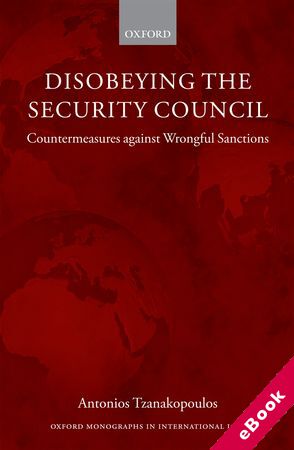
The device(s) you use to access the eBook content must be authorized with an Adobe ID before you download the product otherwise it will fail to register correctly.
For further information see https://www.wildy.com/ebook-formats
Once the order is confirmed an automated e-mail will be sent to you to allow you to download the eBook.
All eBooks are supplied firm sale and cannot be returned. If you believe there is a fault with your eBook then contact us on ebooks@wildy.com and we will help in resolving the issue. This does not affect your statutory rights.
This book examines how the United Nations Security Council, in exercising its power to impose binding non-forcible measures ('sanctions') under Article 41 of the UN Charter, may violate international law, in the sense of limits on its power imposed by the UN Charter itself and by general international law, including human rights guarantees.
Such acts may engage the international responsibility of the United Nations, the organization of which the Security Council is an organ. It then proceeds to assess how and by whom the engagement of this responsibility can be determined. Most importantly, the book discusses how and by whom the responsibility of the UN for unlawful Security Council sanctions can be implemented. In other words, how the UN can be held to account for Security Council excesses.
The central thesis of this work is that States can respond to unlawful sanctions imposed by the Security Council, in a decentralized manner, by disobeying the Security Council's command. In international law, this disobedience can be justified as constituting a countermeasure to the Security Council's unlawful act.
Recent practice of States, both in the form of executive acts and court decisions, demonstrates an increasing tendency to disobey sanctions that are perceived as unlawful. After discussing other possible qualifications of disobedience under international law, the book concludes that this practice can (and should) be qualified as a countermeasure.